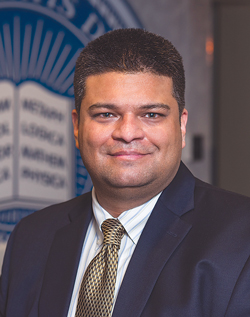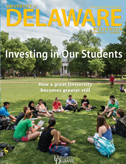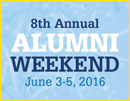My UD: From first generation student to named professor
Jean-Philippe Laurenceau, Ph.D., Unidel Sparks Chair and Professor of Psychological & Brain Sciences

I grew up in the mostly Hispanic and Black neighborhood of East Elmhurst, Queens, where broken English was the norm and school was a “have to.” I don’t remember feeling like it was the first step in a journey to becoming an educated person. It was just something you had to do as a kid. And for a lot of my friends, it was something you did until you got a job after high school.
But I had this agreement with my dad. He had left Haiti in the 1960s for the “Melting Pot” of New York City, where he met my mother, who had come here from Ecuador. They wanted to make sure I got the great education they never did, became the “professional” they never were, obtained the opportunities they never would; in other words, the quintessential immigrant story. And so our deal was this: As long as I got A’s in school, he wouldn’t limit my social life. I could go to house parties, hang out at the park, take the subway line into Manhattan. For better or for worse, that incentive kept me motivated to do well in school.
Well enough to gain acceptance into Regis, a small, all-boys high school on the Upper East Side of Manhattan, where you had to test to get in, and kids came from all over the NYC Tri-State area to be enlightened largely by Jesuit priests who dedicated their lives to educating youth. That was where I realized people went to college, that there was more to life than East Elmhurst.
But when I arrived at college, I experienced true culture shock, partly due to the transition from the inner city to a small town, partly from the lack of people of color, and partly because of the challenges that any first-generation freshman faces. I was surrounded by “professional college students,” with strong study habits and great calculators, and families who mailed them care packages during mid-terms and finals. My parents didn’t know about that. They didn’t know how stressful college is or can be, and not just for academic expectations. But I heard my dad’s voice, relentlessly encouraging me even if he didn’t know how to navigate these waters himself. And because my parents moved back to Ecuador while I was in college, I learned to be self-reliant in a way my college friends didn’t need to be. In the midst of all this, I also met the woman who would become my wife and love of my life, and found support in her and her family.
Today, “My UD” story is a collection of my past experiences and my vision for the future. As an undergraduate, I didn’t encounter faculty that looked like me or who had similar life experiences. And I didn’t encounter any in grad school, either. Current students, fortunately, have more resources, though the need for more is ever-present.
Take, for instance, an African American pre-med, Spanish double major I met at a Latino Heritage Month event last fall. She’s not my advisee—she’s not even from my department. But she’s kept in touch, and when we last spoke, she shared with me how difficult the first semester was, especially her math and science courses. She’s an African American woman interested in the STEM fields, where diversity is sorely lacking on a national scale. We need her to be successful. But calculus was tough. Chemistry, too. These aren’t easy classes for any student, and she needs to feel like there are professors on campus whom she can approach for help, support, resources, guidance. I feel fortunate to be that person for someone.
I told her to keep dreaming big; don’t let one bump derail you. But the fact is, she’ll have more than one bump in the road. She didn’t choose an easy path, and so she’ll have to work harder than most. I also told her to enjoy the hell out of college! It’s not all about the grades. It’s about becoming an adult and flourishing in whatever way reflects your goals—the lifelong friends, the new activities, the exposure to ideas you wouldn’t have otherwise known or had.
I often tell students, not just first-generation ones, you can come to college and get the degree. But will you get an education for life?
All students are trying to find a home on campus, a sense of belonging, that this is where I’m supposed to be—here, right now, in college, at UD. Just talking to students for an hour about what they want to do, listening and giving freely of our time: This is one of the hallmarks of faculty at the University of Delaware, and as close to a home as we can give our students.
J-P Laurenceau first joined the UD faculty as associate professor in 2005 and is also senior research scientist at Christiana Care Health System’s Helen F. Graham Cancer Center. His research examines marital and romantic relationships, with a recent focus on how couples maintain connection and support each other amid health-related adversity.
His commitment to strengthening and enhancing diversity includes serving on numerous councils and task forces, including the Center for the Study of Diversity, the University Diversity Initiative and the Black Graduate Student Association. Additionally, he is active in the University’s McNair Scholars program and has given guest lectures at community colleges as a way to expose students from diverse backgrounds to potential academic opportunities at UD.
What’s your UD story? We want to read more first-person essays from students, alumni, faculty, staff and friends. We’re looking for submissions of 500–750 words on how UD has impacted your life. Please share your story with themessenger@udel.edu.



